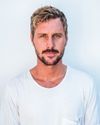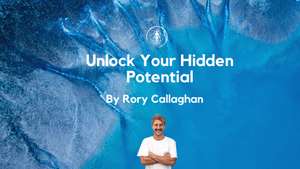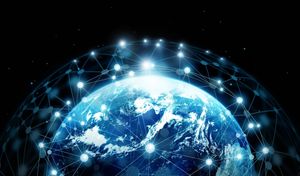You're Made of Stardust (And That Changes Everything)
Have you ever looked up at the night sky and felt simultaneously tiny and enormous? That paradox isn't just poetic—it's scientific. You are literally made of stardust, carrying the universe within your cells.
Would you be open to exploring what that actually means for your everyday life, especially when you're feeling burnt out, tired, or disconnected from your purpose?
The 3 Major Challenges We're Here to Solve Together
- The Potential Paradox: Why do we feel limited when we're made of limitless cosmic materials?
- The Burnout Delusion: Why we've collectively accepted exhaustion as the price of success
- The Environment Mismatch: How modern living works against our biological design
The SelfCare Framework: Learn-Do-Embody-Teach
1. LEARN: Discover Your Cosmic Blueprint
What Makes You Cosmically Significant
Your journey begins with a profound truth: you are literally made of stardust. As Neil deGrasse Tyson reminds us, "We are part of this universe; we are in this universe, but perhaps more important than both of those facts, is that the universe is in us". This isn't just beautiful philosophy—it's scientific fact.
Your Trillion-Cell Universe
The 37.2 trillion cells in your body aren't just passively existing—they're constantly communicating, adapting, and regenerating. Each cell contains about 6 feet of DNA if stretched out, giving you roughly 67 billion miles of genetic material—enough to travel to the sun and back 300 times!
From Cosmic Theory to Daily Relevance
But what does this cosmic blueprint mean for your daily life? Everything. Understanding that you're not fixed but constantly evolving creates the mindset foundation for transformation. As Bruce Lipton's research in epigenetics shows, "We are not victims of our genes, but masters of our fates, able to create lives overflowing with peace, happiness, and love." Your genes aren't your destiny—they're more like possibilities waiting to be expressed through your lifestyle choices.
2. DO: Align Your Daily Choices With Your Design
Your Adaptable Brain
Knowledge without action remains theoretical. This is where the real transformation begins—through daily choices that honor your biological design.
Your brain is neuroplastic, constantly changing and adapting throughout your life. As psychiatrist Norman Doidge explains, "The brain is a far more open system than we ever imagined, and nature has gone very far to help us perceive and take in the world around us. It has given us a brain that survives in a changing world by changing itself."
Every Choice Matters
This neuroplasticity means every choice matters. When you nourish your body with whole foods it recognizes, move in ways that feel good, prioritize rest and recovery, and foster meaningful connections, you're not just performing random "healthy" actions—you're creating the optimal conditions for your innate potential to flourish.
The Garden Principle
As James Clear writes, "Every action you take is a vote for the type of person you wish to become." These daily "votes" aren't about forcing change but about aligning with your design. It's like tending a garden—you don't make a seed grow. You create the conditions that allow its innate potential to express itself naturally.
3. EMBODY: Become Your Potential Rather Than Chase It
Beyond Achievement to Embodiment
Here's where most wellness approaches fall short—they position wellbeing as something to achieve rather than a natural state to embody. True transformation happens not when you're constantly striving but when wellness becomes who you are.
Your Self-Renewing Nature
Your body is constantly renewing itself, with most cells being replaced every 7-10 years. This means you're literally becoming what you consistently do, think, and feel. You're not chasing wellness—you're becoming it with every choice.
The Burnout Myth
Modern environments often work against this embodiment. As Arianna Huffington notes, "We're living under the collective delusion that burnout is necessary for success." But nothing could be further from the truth. Burnout isn't the price of achievement—it's a sign that you're working against your design rather than with it.
Creating Your Wellbeing Environment
Embodiment happens when your environment—both internal and external—aligns with your natural state of wellbeing. It's not about perfect execution of wellness practices but about creating the conditions where health becomes your default rather than something you have to constantly pursue.
4. TEACH: Share Your Transformation As Medicine For Others
The Overflow Principle
The ultimate purpose of filling your own cup is to serve from overflow. When your wellbeing becomes embodied rather than theoretical, it naturally overflows to benefit others.
Contagious Mindsets
As Carol Dweck's research shows, our mindsets are contagious. When you believe in your ability to grow and change, you influence others to see their own potential differently. Your transformation becomes living proof of what's possible, creating ripple effects far beyond yourself.
Natural Teaching Through Living
This teaching doesn't require becoming a wellness influencer or guru. It happens naturally through how you live, the questions you ask, and the permission you give others to prioritize their wellbeing. When someone sees you thriving by aligning with your design rather than fighting against it, you create a powerful invitation for them to explore their own potential.
Questions That Create Ripples
This is why the article asks, "What would be possible if I fully believed in my potential? What small step can I take today to create an environment that supports my wellbeing?" These aren't just reflective questions—they're the beginning of a teaching that ripples outward, creating medicine for a world that desperately needs sustainable approaches to wellbeing.
Your Body: The Universe's Greatest Achievement
Astronomical Intelligence
Beyond the astronomical numbers—37.2 trillion cells and 67 billion miles of DNA—your body possesses an intelligence that far exceeds our conscious understanding. Every second, your body is performing billions of precisely coordinated chemical reactions without you having to think about them.
Inherent Healing Wisdom
This innate intelligence isn't just keeping you alive—it's constantly working toward balance and renewal. Your body knows how to heal a cut, fight an infection, and adapt to stress. This intelligence doesn't need micromanagement—it needs supportive conditions.
The Modern Wellness Paradox
The modern wellness paradox is that we often treat our bodies as machines that need fixing rather than intelligent systems that need supporting. We fight against symptoms rather than addressing the environments creating them. As the article points out, our modern lifestyle—with its processed foods, sedentary habits, chronic stress, and disconnection from nature—creates conditions our bodies haven't evolved to thrive in.
From Problem-Solving to Potential-Unlocking
When you recognize your body as the universe's greatest achievement rather than a problem to be solved, everything shifts. Health becomes less about forcing change and more about removing obstacles to your natural state of wellbeing. It's about creating an environment—both internal and external—where your innate potential can flourish as effortlessly as a seed in fertile soil.
Three Simple Steps to Begin Unlocking Your Potential Today
Would you be open to experimenting with three simple practices that align with your biological design?
- Pause for three conscious breaths whenever you transition between activities. This resets your nervous system from stress to balance.
- Move your body in ways that feel good for at least 10 minutes daily. Your body was designed for movement, not desk chairs.
- Connect with something larger than yourself each day—whether through nature, meaningful conversation, or momentary awe at the stars.
Remember: These aren't "extra tasks" for your to-do list. They're returning to your natural state—like a garden returning to abundance when given the right conditions.
Your Next Step: From Cosmic Theory to Daily Practice
Understanding your incredible potential is just the beginning. The real transformation happens when you align your daily choices with this understanding.
Are you ready to move beyond feeling tired, disconnected, or unfulfilled? Would you like to explore practical ways to create an environment—both internal and external—where your natural potential can flourish?
Join our SelfCare Community where we're exploring these principles together. Or discover deeper practices in the SelfCare Book that shows how these cosmic truths translate into practical daily medicine.
You are a miracle of nature, a universe of potential in human form. Your job isn't to become someone else. It's to become more fully yourself.
Key Research References:
Level 1 evidence - Systematic reviews
- Bianconi, E., et al. (2013). An estimation of the number of cells in the human body. Annals of human biology, 40(6), 463-471.
- Spalding, K. L., et al. (2005). Retrospective birth dating of cells in humans. Cell, 122(1), 133-143.
Level 5 evidence - Accredited Health Experts cited
- Bruce Lipton, PhD - Cell biologist and author of "The Biology of Belief"
- Norman Doidge, MD - Psychiatrist and author of "The Brain That Changes Itself"
- Arianna Huffington - Founder of Thrive Global and author of "Thrive"
Other
- Neil deGrasse Tyson - Astrophysicist and author of "Astrophysics for People in a Hurry"
- James Clear - Author of "Atomic Habits"
- Carol Dweck - Psychologist and author of "Mindset"
REFERENCES
This is directly referenced from the Amazon best-selling SelfCare Book "Lifestyle Medicine For the People" by Rory Callaghan. If you would like to read more content like this, grab the free online chapters of the book or a hard copy.
We have done our best to reference everyone's expert opinions, peer-reviewed science, and original thoughts, all references available here and referenced in the text.
We also understand that most thoughts are not our own and there is a collective unconsciousness, unconsciousness, and universal mind stream of energy that is always at work. How our references are sorted and filtered is here.
This article is for informational purposes only and should not replace professional medical advice. Always consult with your healthcare provider before beginning any new health regimen.



